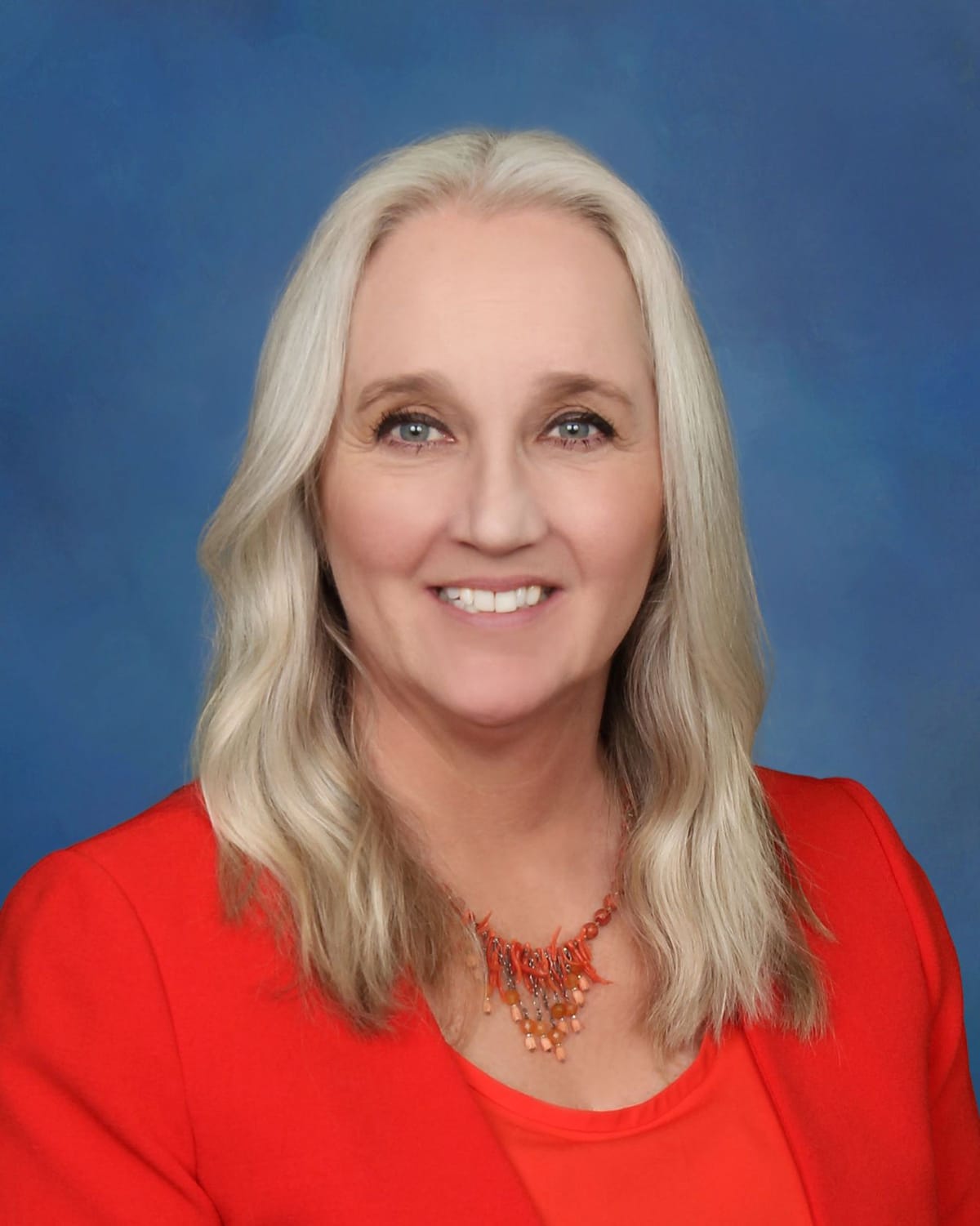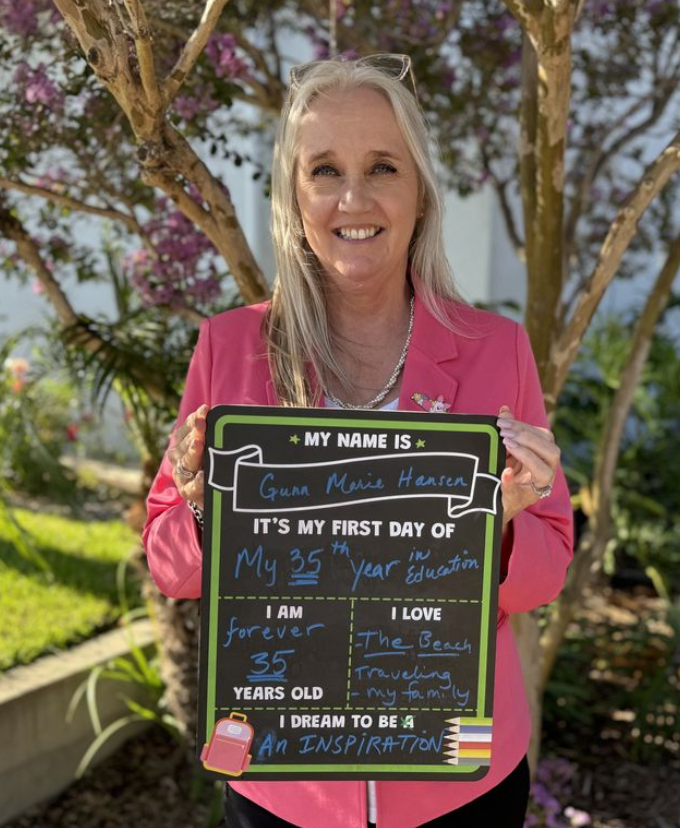Q&A: Westminster School District Supt. Previews the New School Year
Gunn Marie Hansen shares goals for 2024-25 and discusses cellphone restrictions, chronic absenteeism, and how WSD is 'leading the way' with Artificial Intelligence.

The Westminster School District kicked off the 2024-25 school year on August 28. Thousands of pre-school, elementary, and middle school students returned to the district’s 17 campuses to start a fresh season of learning.
Last week, Spotlight Schools co-founder Jeannette Andruss sat down with Superintendent Gunn Marie Hansen, Ph.D., at the district’s main office for a 30 minute interview. Dr. Hansen, who has been in her position since 2023, shared the district’s goals for the new school year, building on its six-year WSD Inspires! Strategic Plan that was passed in August 2023.
The goals are lofty including expanding arts education, modernizing early childhood programs, expanding community schools, and empowering educators to harness the benefits of Artificial Intelligence. Editor's note: This interview has been edited for length and clarity.

Spotlight Schools: What are some of the things you are excited about for the 2024-25 school year?
Dr. Hansen: “Focus area 1.0 [of the strategic plan] is the academic achievement and continuous innovation. That's the core of the work that we do. In the first focus area, we've received Prop 28 funding for the arts, so that's a big focus for this year, is implementing the district-wide arts program. We've hired six to seven new visual and performing arts teachers. We’re really excited about [students] having, two to three times a week now, music, theater arts, fine arts, in our schools.”
“We also received the $14 million Community Schools Grant [for 13 of the 17 campuses.] It’s focused on providing support services to families and children to ensure that we raise academic achievement. We’re hiring mental health counselors. We’re also extending the work calendar and number of hours that our community liaisons are at our school sites to support parents. We're implementing a lot of engagement strategies with our parent and family community, and then it's all based on the instructional coherence of ensuring that we raise student achievement, particularly for our English learners.”
“We have one of the few infant/toddler programs in Orange County, and we received another grant, like $1.3 million to expand additional infant/toddler classrooms. We've spent the whole summer reconfiguring for licensure our Land Center … so that it becomes more of a child development center. It's going to become an enrollment Parent Training Center, also for our incoming infant, toddler, pre-school students. So we're really excited about this.” (The Land Center also offers dual-language immersion programs for early learners in Spanish and Vietnamese.)
“We have the first Vietnamese dual immersion program (DeMille Language Academy) in the state of California and it is marking its 10 Year celebration this year. And our students have almost college-level proficiency in Vietnamese now. When they go to Westminster High, they're not taking Vietnamese one or two, like you would take Spanish one or two. They're going into the advanced three and four sections because they have native-like proficiency. So we're really excited about that program.”
The school district also offers a dual immersion Spanish language program at Willmore Language Academy. Dr Hansen shared WSD is looking at expanding their dual language offerings including possibly adding a Korean language immersion program.
Dr. Hansen and the WSD school board passed a six-year Strategic Plan last year that is being implemented. The district will hold a study session on the plan on Sept. 12.
Spotlight Schools: Numerous school districts are enacting smartphone bans. What is happening in WSD regarding students' use of cellphones during school hours?
Dr. Hansen: “We have an interest from our board to study this and to come up with the strategy to potentially have in classrooms lock boxes or little pouches where [students] put their [cellphones] when they're in the classroom so it's not accessible. Already teachers are doing this, especially in the lower grades. I think when it gets to middle school, you know, it's also happening there, but what they're doing is, during their free time, [students] have access to their phones, like at lunch and recess, and that's the piece where we have to come up with a policy.
There's a place for technology, but it should be regulated, and it should be part of the instructional design that the teacher has. We do see moving in that direction. We just want to study it with our board first and come up with a policy. And there's a community engagement piece. We need to really review the policies and ensure that everybody understands, because there may be some exceptions. We know that parents, because of safety issues, you know, there might be some issues where we have to explore. So that's what we'll be doing this year, is really putting together a committee to look at the policy.”
Spotlight Schools: Chronic absenteeism is on the rise for many school districts in O.C. What is the WSD enacting to get more kids to come to school?
Dr. Hansen: “I know that our internal data shows a major reduction in chronic truancy, in chronic absenteeism. Last year, we had a very strategic effort to bring students in on Saturday to make up their absences, so that the learning loss was addressed. We had a Saturday school every month at all the elementary schools and all the middle schools. And so those students that were absent were sent letters to their families, and then the principals also contacted them. We had a really good reception to that. But then also this summer, we had a learning recovery program.
But we're also trying to create more healthy habits, like students getting [to school] on time, realizing that when you miss school, you're going to get behind because you're missing the teacher's instruction for a day. So we're really trying to work with our parents and our family members to understand that coming to school every day is super important for your child to remain on grade level, because the more days they miss, we can see that they're losing instruction.”
Spotlight Schools: Anything else you want to highlight in the district?
Dr. Hansen: “I think we're leading the way with Artificial Intelligence because we have a i4 innovation group that is meeting. It's a total of about 65 teachers in the district that are really learning the tools of AI and how it can be incorporated in their lesson planning and their great pedagogical training that they already have. They are looking at: how do we use AI in the educational arena, as from a teacher classroom perspective, what is the adult in the classroom going to use it for, to facilitate knowledge and learning? Because it's here to stay, and we need to have a process. There's the good and the bad of AI. We're looking at it from the good perspective of putting guardrails on, and how we're going to use it and how students might be able to use it. So we feel like we're really on the cutting edge.”
Read more coverage of the Westminster School District at SpotlightSchools.com.
